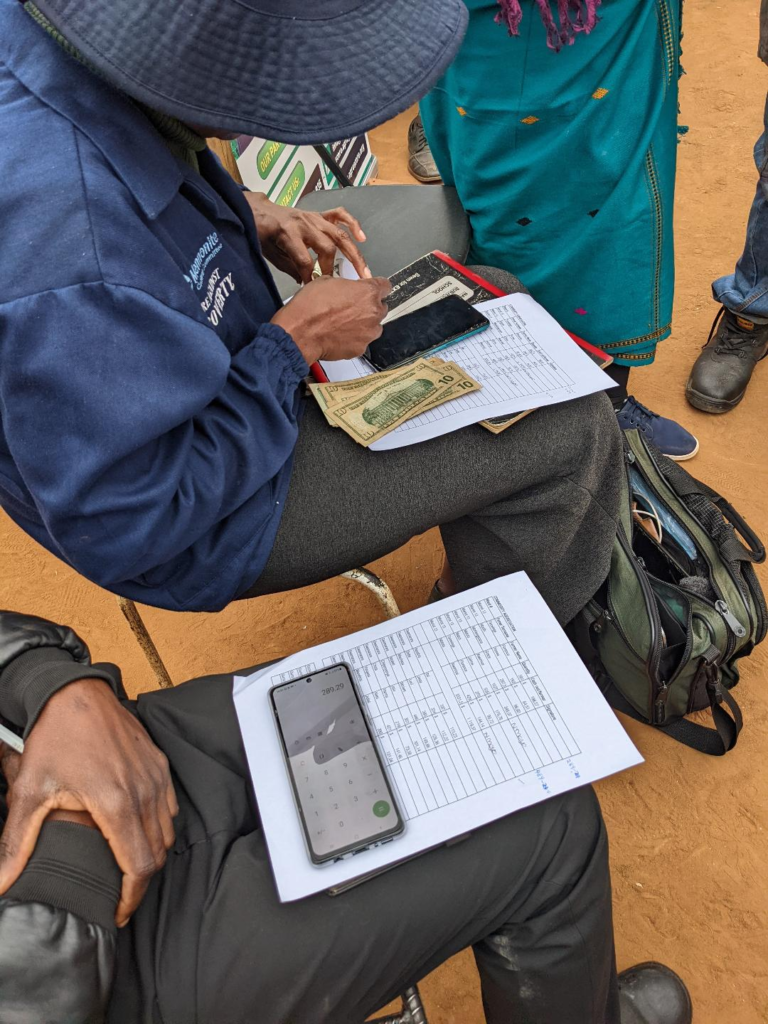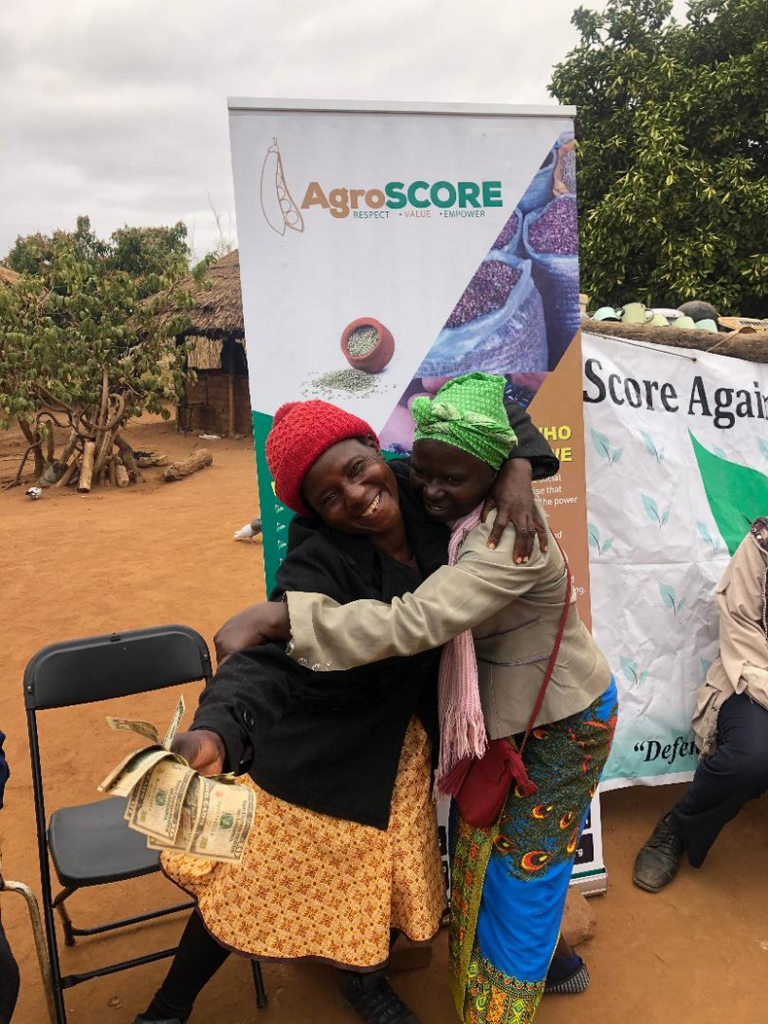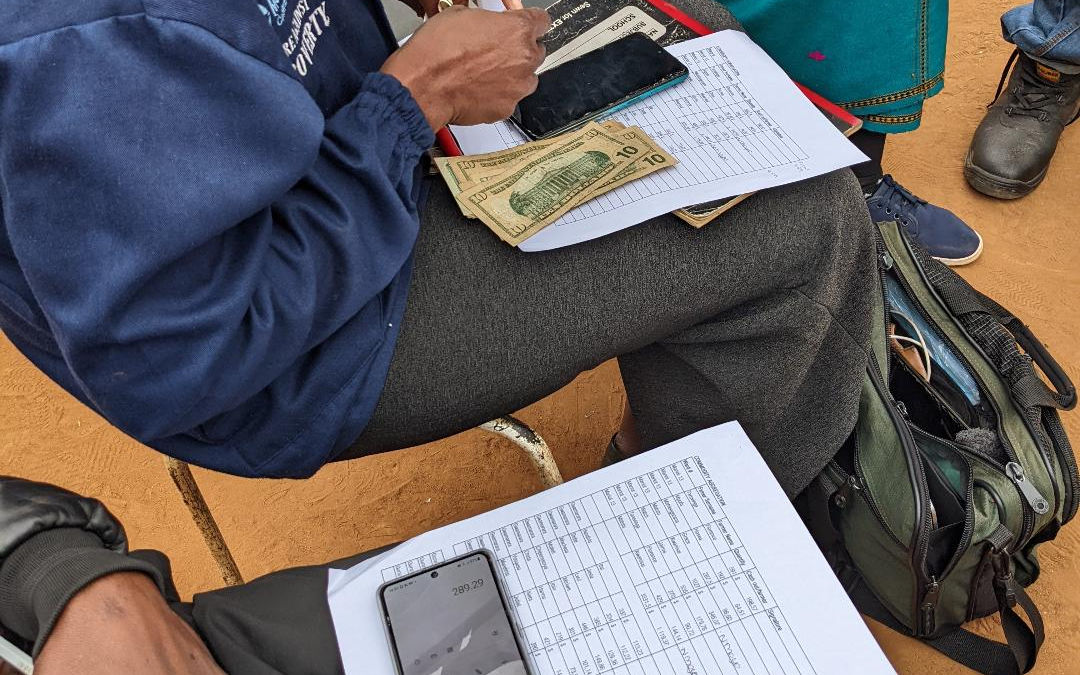For many like Florence, aggregation of her grain with other SCORE farmers was another leap of faith. Could she trust Agro-SCORE, the social enterprise wing of SCORE to take her crop, without paying her, and hope that she would get a better price or indeed, even be paid? I was there to witness and verify that she, and others, mostly women farmers that this happened. Some days ago, Agro-SCORE carefully weighed and recorded each farmer’s grain and bagged it in specially branded bags together with other farmers in this area. Then they hired a truck and took two farmers with them to the buyer, some six hours away. Why was this exercise so important that when they returned we were greeted with shouts of joy, singing and dancing?

Florence T. was happy to explain it to me.
“I am the mother of two children, so this is very helpful to me, as a woman in this role.
“Before I had to carry tins of my grain to the school to pay school fees, I had to carry tins of grain to the store to pay for food and school supplies. I was carrying a few tins at a time to sell to trucks passing by on the main road (an hours walk) that would pay me in South African Rand. Then the next time I needed money I would do it again. I made many trips to the main road which took time. Also by the time I would get to the township, the Rand was worth less than the day I got it, due to situations in South Africa.
“Today, I am paid in US dollars because of the power of Agro-SCORE. This money will actually be more powerful over time, instead of less like the Rand. In addition, I was able to bring all my grain at one time after harvest, in a scotch cart (donkey cart) to the collection point, this saved me days of going to the road and back. Finally, at the road they were paying me 50 rand a bucket where as with Agro-SCORE they were able to pay me (equivalent) of 90 R a bucket. Would you not also dance?”
So this is the next step for SCORE who started some years back with the vision of Vurayayi Pugeni, as young man ,who wanted to help his sister earn a living and his community be better able to feed themselves.

The first goal in this game against poverty was to just get more crops, using conservation agriculture techniques. Then introducing inter-cropping, now by aggregating the crops and selling direct to buyers the team has once again made a SCORE against the poverty of their district.


Recent Comments